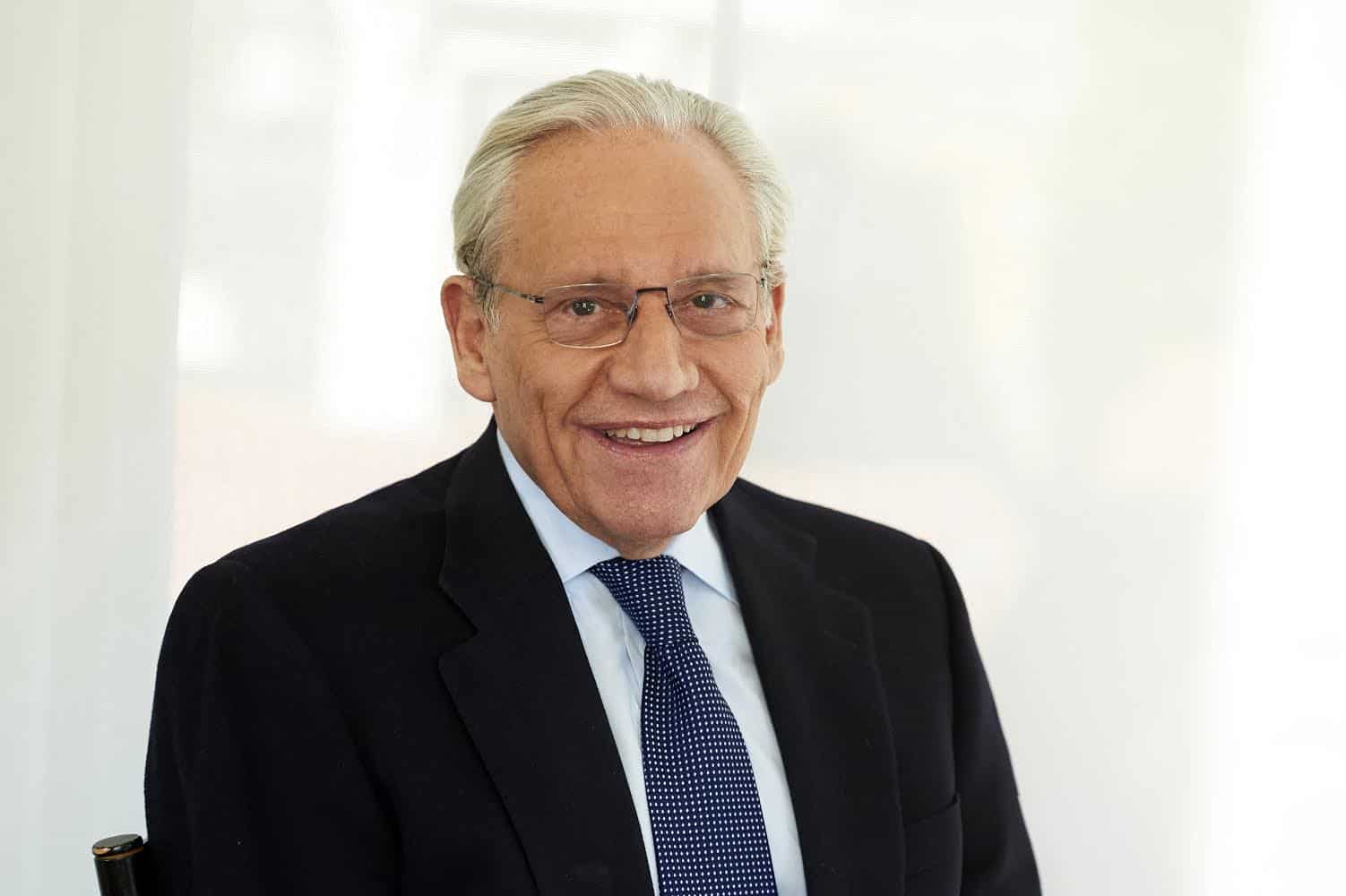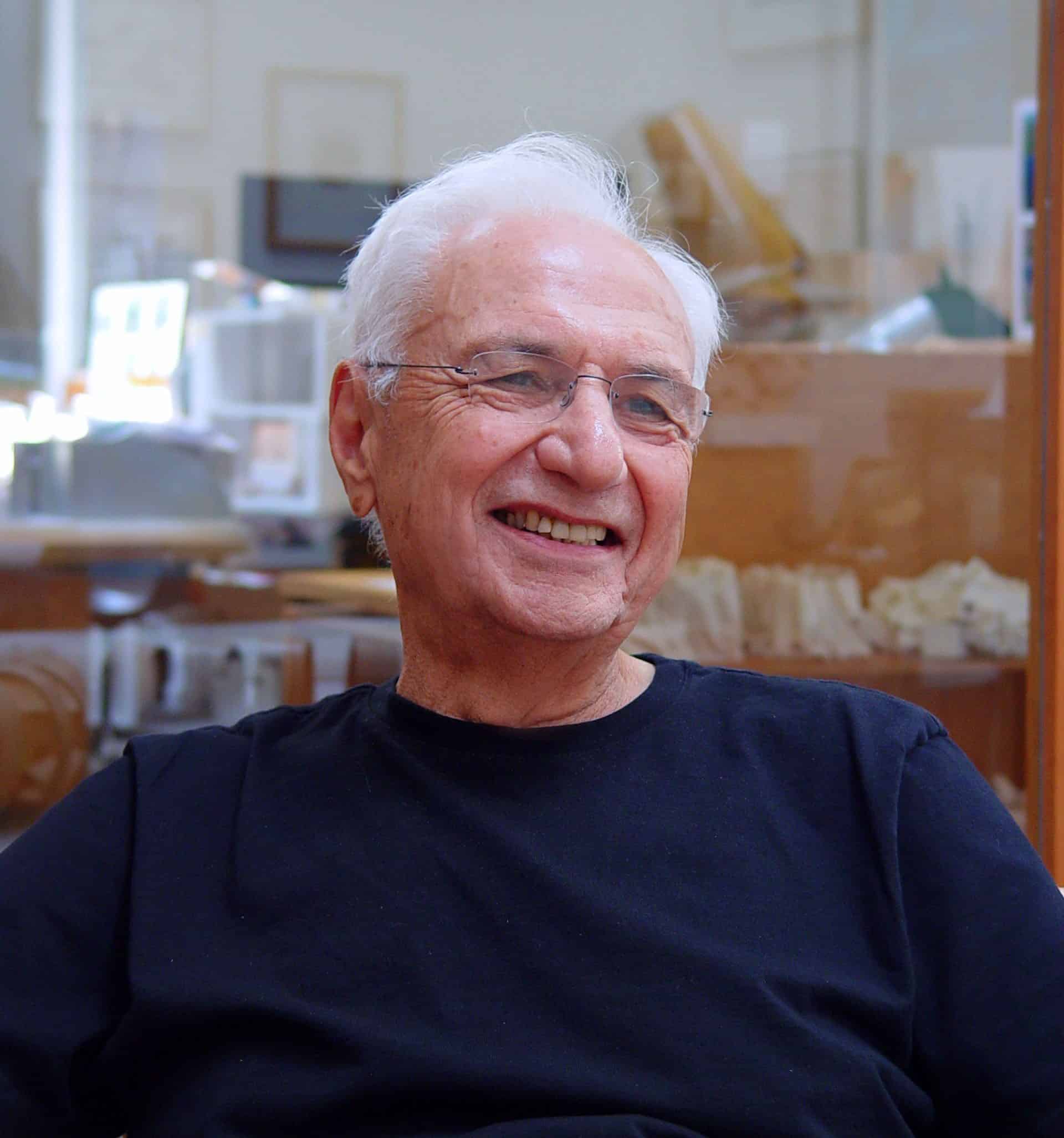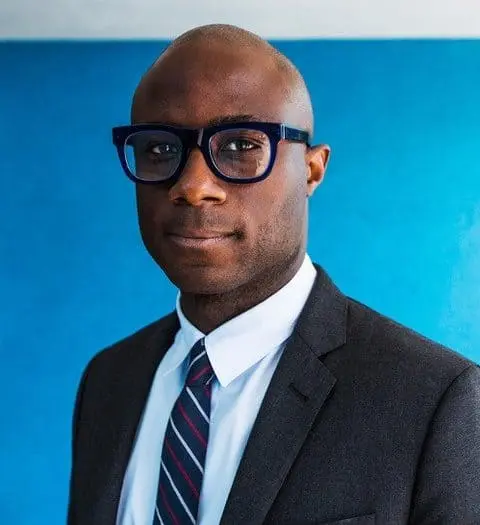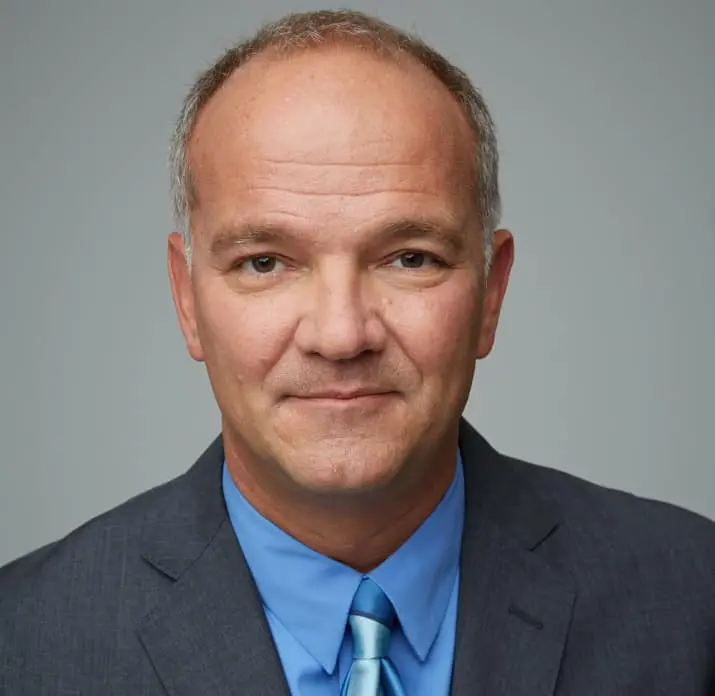Bob Woodward is an associate editor of The Washington Post, where he has worked since 1971. He has shared in two Pulitzer Prizes, first in 1973 for the coverage of the Watergate scandal with Carl Bernstein, and second in 2003 as the lead reporter for coverage of the 9/11 terrorist attacks. He has authored 19 books; the latest, Fear: Trump in the White House became a #1 international best seller, selling over 1.1 million copies in its first week in September 2018 and breaking the 94-year-old first week sales record for its publisher Simon & Schuster.
Below are his full remarks from the 2019 PEN America Literary Gala, including an introduction by journalist and author Robert Caro and additional remarks by special guest, Carl Bernstein.
Robert Caro
Bob Woodward, to whom I’m going to present this award tonight, has authored or co-authored 19 books, of which no less than 13 have been number one national best sellers. Thirteen number one best sellers is a very impressive number, but that’s not the aspect of Bob Woodward’s career that made me happy to be able to present this award tonight.
What made me happy is four pages in one of those books. The first book, All the President’s Men, which he and Carl Bernstein, who is also with us here tonight, wrote about their monumental investigative effort, which produced Watergate and brought down President Richard Nixon. Those four pages tell about how they were unable to obtain information about the vast amounts of cash that were being raised and distributed by the committee to reelect the president. CREEP, as it was known—Committee to Reelect the President. President Nixon, not our current president, but Richard Nixon, his forerunner in the 1972 campaign. CREEP, as it was known, “seemed inviolate” they wrote in In All the President’s Men, I’m quoting them, “as impenetrable as a super secret national bureaucracy. Everyone connected with the Committee was afraid, terrified really, to talk about it.”
Woodward and Bernstein finally get their hands on a list. A list of CREEPs officials and their private secretaries. A hundred names. They tried telephoning them; no one would take their calls. So what do they do? They go to see those hundred people in person at their homes in the evening. The deadlines at the Washington Post then for the ordinary stories, routine stories that they were working on were 7:45. So it was about 7:45 each night that they would head out from the office to knock on doors. Scores and scores of doors. A hundred doors. A hundred names. They go down the list one by one. The reactions are dramatic. The first person pleads with them to go before they see you. Doors are slammed in their faces, and so they write.
Bernstein and Woodward went off to bang on other doors and they keep doing it. Night after night. Their information comes, Woodward and Bernstein would say, “in bits and pieces.” One of the CREEP’s secretaries wouldn’t let them in the house and says, “Please don’t call me on the telephone again. Nobody knows what they’ll do. They’re desperate.”
We’ve given this award tonight to Bob Woodward, a great reporter. What is a great reporter? Someone who never stops trying to get as close to the truth as possible. There is no truth, we all know that. No one truth. No objective truth. No single truth. No simple truth or no one simple truth either. But there are facts. Hard facts. Objective facts. Verifiable facts. And the more facts you come up with, the closer you come to whatever truth there is.
So what does it mean to be a great reporter? I mean a great reporter, like Bob Woodward. Sometimes it means taking a list of a hundred names and with your partner, going through that list, name by name. Names of people who have moved. Names of women who have gotten divorced and remarried and had their names changed. A lot of names that are hard to find. Crossing out those names one by one, until you’ve found and done your best to talk to everyone. You try everyone, one by one, one after the other. That’s reporting. That’s the search for the truth.
Novelists, poets, nonfiction writers, that, at bottom, is what we’re all trying to do. Trying to search for, to illuminate, to provide insights into whatever truth there is. In his entire career, Bob Woodward never stopped seeking out facts. As many facts as he could get. Bob, in 19 books, has been doing that all his life. And exhibiting the same kind of tireless effort that was revealed in those four pages that thrilled me so long ago.
He is one of the great reporters of our time. A great journalist of our time. One of the greatest explainers of how our government works. How our politics works. Not the kind of government in politics that we’re taught about in high school, or college, and textbooks. But how they really work, in reality. Throughout all his life, 19 books, Bob Woodward has demonstrated the same dogged, relentless, uncompromising search for the truth that was documented in those four pages from his first book in 1974. That’s great reporting.
I had just finished my first book and when I read All the President’s Men so many years ago now, I was filled with admiration. And now, Bob Woodward has been reporting like that for 45 years. He’s written 19 books, as I said, 13 of them have been the number one best seller. But that’s not what I admire about him. It’s that he never, no matter how famous and legendary he has become, he has never stopped looking for facts. And now just look to the screen, for a short video about Bob Woodward.
For everything that you saw in the video, and all the reasons that I mentioned before the video, I am proud to present the 2019 PEN Award for Literary Service to Bob Woodward.
Bob Woodward
Thank you, Bob. It’s fascinating that you would pick on that issue of going to see people at night. I remember about a dozen years ago working on the last book of George W. Bush’s wars in Afghanistan and Iraq, and there was a general who would not talk. I sent messages, phone messages, emails, intermediaries, nothing. So I realized on the painful road of introspection that I’d become lazy. I was inviting people over for lunch or dinner, going to their offices and not exercising, not practicing what Carl Bernstein taught me back in 1972: Go knock on a door.
So there was the general who would not talk. I found out where he lived and decided I would go visit him. Now when is the best time to visit a four-star general without an appointment? In the evening. It turns out that 8:17 on a Tuesday is the best time to visit a general. A Tuesday is not a Monday, it’s not the beginning of the week or the end of the week. So, I went to his home and knocked on the door. He opened the door, looked at me and said: “Are you still doing this shit?”
He really meant it. It was sincere. But I learned from CIA case officers the power of silence. How important it is to let the silence suck out the truth. So I stood there poker-faced. No expression, did not say anything. He looked at me and finally got a disappointed look on his face. I think not in me, but in himself. He waved me in and sat for two hours and answered most of the questions. Why after being such a determined no did he become a yes? The answer is: Somebody showed up. We are not showing up enough in our business.
Just the act of going to see someone and saying, “I want your story. I want to listen.” I have a little technique I learned over the years, and I stick this finger over my little finger and jam it in so it hurts. It is a reminder to shut the fuck up.
I want to thank real quickly a number of people: Jennifer Egan and Suzanne Nossel, the CEO of this organization. No one in this country supports free speech and writers as actively and passionately as they do. I want to thank Simon & Schuster, my publisher of 19 books. The boss, Carolyn Reidy. Jonathan Carp, not only a great publisher but a great editor. You turn in a manuscript and he will say: “It’s great and I have a few ideas.” On the last book, Fear: Trump in the White House, we talked for three and a half hours on the phone for him to convey a few of his ideas.
But the great presence in Simon & Schuster is Alice Mayhew, my editor. Imagine working with the same person for 47 years. Those of you who know Alice, those of you who have been blessed to have her edit your work, Alice has two four-letter words that she loves to use and you need to understand. You will be reading and she would have edited a chapter and then there would be one of those word which is “tone.” Then you will go on and the next four letter word is “pace.”
I remember on All the President’s Men, Carl Bernstein and I were locked in a hotel here doing the final edits, and Alice came over and she said: “These 90 pages need to be cut. Pace.” I said: “Oh, okay. How much should we cut them?” She said: “How about down to two pages.” We did it and she was right. Bless Alice Mayhew. Bernstein still has those 88 pages in the drawer and is going to put them in his memoir.
The next person to thank is Carl. Not only do I cherish the time we worked together on Nixon and the Watergate case, but I cherish our friendship. At the Washington Post I want to thank Jeff Bezos who owns the Washington Post in the tradition in which the Grahams, Don and Katherine Graham, owned the Washington Post. Marty Baron, the executive editor, one of the truly great editors who manages the news site of the Washington Post in a way that Ben Bradlee would be proud of.
I also want to thank my wife, Elsa Walsh. She has been my public and private soulmate for almost 40 years. The person you fınd essential to your life. Somebody who is a guide and best friend. Evelyn Duffy, my assistant on five books. Bob Bernant, I want to thank my lawyer on so many books and full of so much wise advice which he was not able to give Hillary Clinton in the 2016 election.
One of the great questions in Washington these days, of course, is the governing crisis that is Donald Trump. That is not a political statement or a partisan statement; it is based on fact. But one of the other questions pulsing in Washington is the silence of the Republicans. Any reporter that covers Congress or the White House and deals with Republicans knows and realizes that these people, though they are silent in public, privately share the anxiety and distress of many other people.
I want to go back to a time where Barry Goldwater broke the silence of the Republicans. Carl Bernstein and I were able to get in his apartment one night because he invited us. It was after Nixon resigned and he read his personal diary to us. The diary entry of August 7, 1974, was Goldwater, as the conscious of the Republican party, went to the White House with the Republican leaders from the Senate and the House. Nixon knew he was going to be impeached, charged in the House. The smoking gun tape was released two days earlier, and it was very evident that the support was eroding but the corner had not been turned.
So at the meeting, President Nixon said to Goldwater: “Barry, how many votes do I have in the Senate?” And Nixon kind of in his awkward way joked: “Well, 20.” Of course, 20 would not be enough. He would need 34 to stay in office. Then Goldwater said the following: “Mr. President, I have counted the Republicans and you have four votes, and one of them is not mine.”
Nixon on the next night announced he was resigning. In his farewell address the day after that, August 9, Nixon spoke in the East Room in the White House. It was his farewell address and he did not have a text and he was sweating. His wife, two daughters, and two son-in-laws were standing behind him. He talked about his mother, his father, his family. It was quite an outpouring. But there was a moment when Nixon waved his hand and said: “This is why I called you here together. Always remember, others may hate you but those who hate you don’t win unless you hate them. And then, you destroy yourself.”
Powerful words, a powerful truth. It was as if Nixon finally understood himself, unraveled the essence of himself. He answered the big question: Why? Why all the criminality? Why the abuse? The abuse of power? It was hate. The poison of hate. That awful, destructive force of utter contempt for other people. It was the engine of his presidency in so many ways and in the end destroyed him.
Now, 45 years later, President Donald Trump publicly exploits the divisions in this country without restraint. The Trump rallies are, just look at them. Primal. He has turned hate, in his own way, into ammunition for political and personal warfare. A few excerpts of what Trump has said at these public rallies:
“Knock the crap out of him, would you? I promise you, I will pay your legal fees.”
“I will beat the crap out of you.”
“I would like to punch him in the face.”
“Maybe he should have been roughed up.”
“Part of the problem is no one wants to hurt each other anymore.”
“I don’t know if I’ll do the fighting myself or it will be other people.”
Trump has legitimized hate and fear. It has happened before our eyes. It should be intolerable. But it is not. After these comments, his press secretary, Sarah Huckabee Sanders, was asked and she said the following: “The president in no way form or fashion has ever, ever promoted or encouraged violence.” Of all the untruths surrounding Trump, that may be the greatest untruth.
Ben Bradlee, the editor at the Post, used to tell us how you deal with the stress of reporting a story when it’s hard. And he said: “Nose down. Ass up. Moving slowly forward to the truth.”
The message was dig, systematically find new sources, and, in the words of the four star general, “Keep doing this shit.”
I believe Ben would realize that we again have that challenge.
Thank you very much.
Carl Bernstein
That was great!
One of the things you and I have talked about since we started working together was really what Bob Caro began his introduction with. And that is what we do is to try and get the best obtainable version of the truth. It’s very imperfect, that attempt. It’s hard. Requires the kind of perseverance that Bob talked about. Both Bobs talked about.
But also, when you quoted Bradlee, our great editor, I thought back to another thing you said. And he said no matter how bad it looks, and I’m paraphrasing, I’m confident that if the press does its job, the truth will become known.
And I think that’s true. It doesn’t mean necessarily that the job of the press is to drive a president from office. But rather the job is to get the truth and get the facts out there so that the people of the country, citizens can have that best obtainable version of the truth. And I think that’s what this whole evening is about. And it’s why you’ve been so honored tonight, as you should be.
Much love.









